The Union of Arab Chambers, in cooperation with HOPE MCF, is organizing the third edition of the "Private Sector Social Responsibility and its Role in Sustainable Development" conference at the Union of Arab Chambers headquarters in Beirut, Lebanon, on July 22, 2025.
The conference follows the success of the first and second editions, held consecutively in 2022 and 2023. It also comes amid profound economic and social transformations taking place in the Arab world, requiring a redefinition of the private sector's role in development and growth from a more comprehensive and sustainable perspective, along with enhanced transparency, improved performance, and expanded partnerships to achieve ambitious development goals.
The conference will launch the Arab Social Responsibility Index, a strategic tool aimed at measuring the social and environmental performance of institutions and providing a unified reference for accountability and continuous improvement. This index was developed based on extensive field surveys targeting a diverse segment of Arab companies, with the goal of raising the level of commitment to sustainable practices and establishing sound scientific evaluation.
This index is not just an assessment tool, but rather a "strategic compass" that guides companies toward adopting responsible practices that make a tangible difference at the social and environmental levels, enhance transparency, and unify concepts and standards related to social responsibility across the region.
The "Arab Index Guide" was also prepared as a comprehensive reference to help organizations design and implement effective strategies that align with the principles of good governance and positively impact society and the environment.
Private sector social responsibility is gaining increasing importance in the Arab world, as economic institutions no longer focus solely on profitability but also assume advanced ethical and societal roles. In light of the challenges posed by globalization, social responsibility is emerging as an effective tool for balanced development and strengthening the role of the private sector as the backbone of the national economy.
Integrating the principles of social responsibility into business strategies is a necessary approach that contributes to reducing poverty rates, rationalizing resource consumption, providing job opportunities, empowering women, and developing human capital, thus enhancing sustainable development paths. This requires an advanced legislative system that stimulates investment in entrepreneurship, training, and capacity-building for rising generations.
In this context, the United Nations Global Compact calls on companies to align their strategies with core principles related to human rights, labor, the environment, and anti-corruption, in addition to adhering to societal goals. Thousands of companies around the world have responded to this call by integrating sustainability into their operational policies, which has a dual impact: institutional and societal.
Based on the Union of Arab Chambers' belief in the importance of this approach, it plays a pivotal role in promoting a culture of sustainable growth, a just society based on equal opportunities, and effective partnerships between various economic actors, as the primary representative of the Arab private sector.
In Lebanon, the HOPE MCF initiative, in collaboration with the United Nations Development Programme and the Ministries of Social Affairs and Interior, has served as a model for empowering NGOs and promoting transparency since 2014. These efforts culminated in the launch of the "Sociality" platform in 2022, in collaboration with the Union of Arab Chambers and the League of Arab States, as a systematic digital platform for developing social responsibility practices in the Arab world.
The "Corporate Social Responsibility Training Manual," issued by the Coalition for Integrity and Accountability (AMAN), provides a practical tool to support organizations seeking to improve their performance in this vital area.
The Sociality platform's founders aspire to develop strategic partnerships with all relevant experts and stakeholders, supporting the integration of regional initiatives and unifying efforts toward more inclusive and equitable development.
In light of these integrated initiatives, the Arab world is confidently moving toward instilling a culture of responsibility and strengthening partnerships between the public and private sectors, thus meeting the aspirations of future generations for a more sustainable and just future.
Conference Objectives:
1. To highlight the importance of the private sector's role in social responsibility programs and its focus on the economic and social aspects of society.
2. To raise awareness of social responsibility and the importance of incorporating it into corporate strategies.
3. To highlight the role of the private sector in launching and implementing initiatives that serve the economy, society, and environment.
4. To establish reliable methodological frameworks for developing social responsibility programs to achieve sustainable development and support the state through the adoption of incentive legislation.
Main themes of the conference:
First: Strengthening the role of the private sector in consolidating development partnerships: Highlighting the private sector's contributions to supporting and implementing multilateral partnerships within sustainable development paths, thus enhancing solidarity among economic and social actors.
Second: Oversight and auditing to enhance transparency and sustainability: Discussing the importance of oversight and evaluation systems in ensuring that private sector activities comply with the principles of sustainable development and instilling a culture of accountability and good governance.
Third: The role of the private sector in empowering vulnerable groups and promoting social justice: Reviewing initiatives aimed at empowering women, promoting gender equality, supporting persons with disabilities, improving the quality of education, and combating poverty as part of the private sector's societal commitments.
Fourth: Analyzing the challenges facing the institutionalization of social responsibility: Presenting the most prominent structural, organizational, and operational obstacles that hinder the expansion of social responsibility practices in the Arab private sector, and exploring ways to address them.
Fifth: Building effective strategies for social responsibility and governance: Proposing practical mechanisms and plans to develop sustainable and integrated social responsibility programs and strategies based on the principles of good governance and long-term sustainability goals.
Sixth: Presenting successful Arab experiences and models: Presenting pioneering models from the private sector and Arab non-governmental organizations that have contributed to implementing the National Agenda for Sustainable Development, with the aim of exchanging expertise and disseminating best practices.
Main Organizers:
· Union of Arab Chambers.
· United Nations Industrial Development Organization (UNIDO) Investment and Technology Promotion Office in Bahrain.
· League of Arab States – Social Affairs Sector.
· Hope MC.
To contact the Union of Arab Chambers:
Address: Adnan Kassar Edifice for Arab Economy - Beirut – Lebanese Republic
Phone: +961 1 826 020/21/22
Email: uac@uac.org.lb
Date published : 11 June 2025


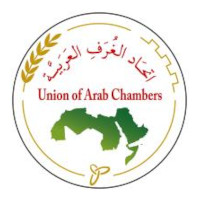
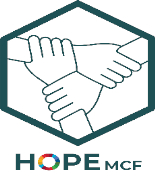
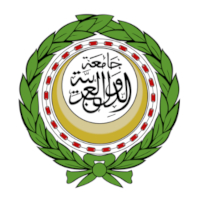
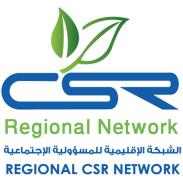

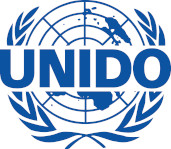
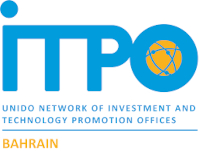
+ ADD COMMENTS
Thank you,
we will back to you soon